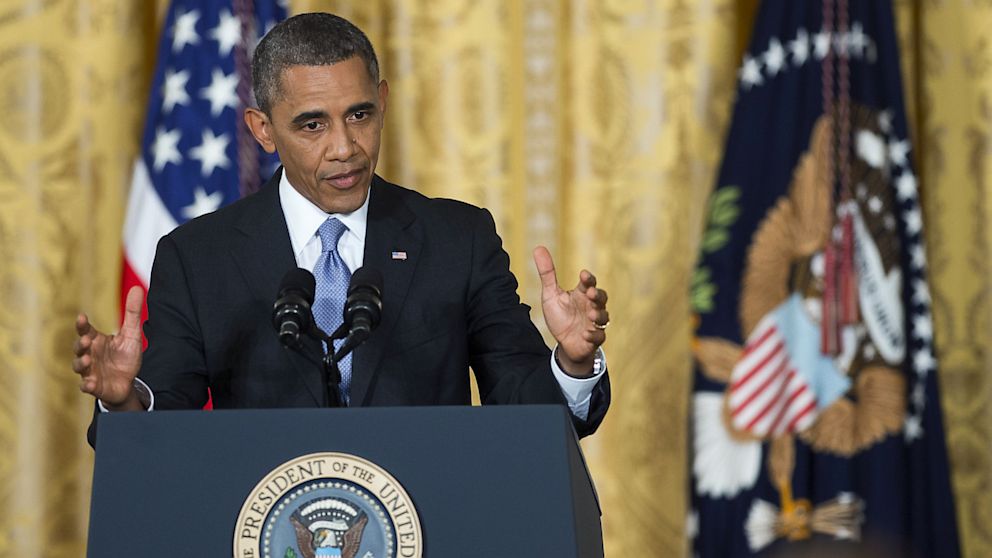Perhaps President Obama instinctively understood that any mass unity rally in Paris would be more of a feel-good photo-op than a genuine response to Islamist terror or anti-Semitic violence. Perhaps the Secret Service sought to veto an impromptu visit from the president or even Vice President Biden on security grounds. But whatever the reasons for the decision not to send a high-level American representative to the event in Paris, it told us something important about this administration’s approach to the relevant issues as well as about this president. By choosing to stay away from the march, the United States expressed not only its public disdain for the effort to respond to the rising tide of hate, but the president also demonstrated that he doesn’t understand that being the leader of the free world occasionally requires him to show up even when he’d rather stay home. The symbolism of the boycott illustrated very clearly why Obama is the first American president since World War Two to publicly disdain that title.
Administration defenders are dismissing criticisms of the astonishing U.S. decision not to send a high-ranking representative by saying that it was mere symbolism. They say that American security cooperation with France against terrorism is more important than such trifles and, in a material sense, they are right about that. Indeed, even White House spokesman Josh Earnest’s admission that a mistake was made tried to emphasize that the error was more one about image than substance. The march was just symbolism and, to the extent that many in the media were prepared to treat it as a substantive answer to Islamist terror or the rising tide of Jew-hatred that has afflicted Europe in recent years, it was an entirely inadequate one. A day after this massive event, French Jews remain under siege with their institutions being guarded by thousands of Army troops and police. It has yet to be seen whether a genuine change in atmosphere or anything like it will stem from all of the righteous rhetoric being uttered about unity in a Europe that has proven more interested in appeasing Islamists than fighting, and where anti-Semitism has moved from the margins to the mainstream in the last decade.
But that did not relieve the administration of its obligation to join with other nations who sent their leaders to Paris to show solidarity after such egregious attacks on the West. That even Attorney General Eric Holder, who was already in Paris and meeting with security officials who did go to the march, disdained to make an appearance at the march spoke volumes about the administration’s attitude.
By passing on it, the president was, as he has done before, tripping on what he calls the “optics” of a situation. It should be recalled that after he made a statement about the death of James Foley at the hands of ISIS terrorists, he followed it with a round of golf during which he was photographed joking and laughing with his companions. Afterwards, he admitted this was a mistake but in doing so he was merely acknowledging that the unfortunate juxtaposition was bad politics. But there is more to such “optics” than losing a news cycle to critics who can pounce on a gaffe.
This is a man who sought and embraced the power that comes with the presidency but even after six years in the White House, he has not learned that along with the ability to make important decisions, the essence of such an office is moral leadership. That means that presidents, like all world leaders, are not merely acting a part in a political play but are actually setting the tone for their nation’s national discussion and behavior on crucial subjects. Great leaders, such as Franklin D. Roosevelt and Ronald Reagan, understood this even as their critics attacked them for being theatrical showmen. Obama not only refuses to play such a role, he still seems to not to understand that such symbolic acts are in some ways as important as policymaking.
But, of course, there’s more here than mere tone deafness to public opinion. The president’s flat line response to the Charley Hebdo massacre and then the terrorist attack on the kosher market in Paris (which he failed to characterize as an act of anti-Semitism in his public statement after it happened) illustrated his lack of comfort on this terrain. This is a president that has spent his time in office trying desperately to reach out to the Arab and Muslim worlds to change their perception of the United States. That he has failed in this respect is no longer in question but his disinterest in taking part in a symbolic response to extremist Islam stands in direct contrast to his eagerness for détente with an Iran that is the world’s leading state sponsor of terrorism. The cold shoulder he gave the Paris march resonates not so much because of the odd and very conspicuous absence of an American representative of any stature, but because it fits with the perception of his attitudes.
If he and his defenders think this is unfair, that is understandable. But a president who disdains acts of moral leadership cannot complain when they are judged as having failed to send the right message to the world. A president who thought of himself as the leader of the free world would not have made such a mistake. One that disdains that title couldn’t help but make it.









